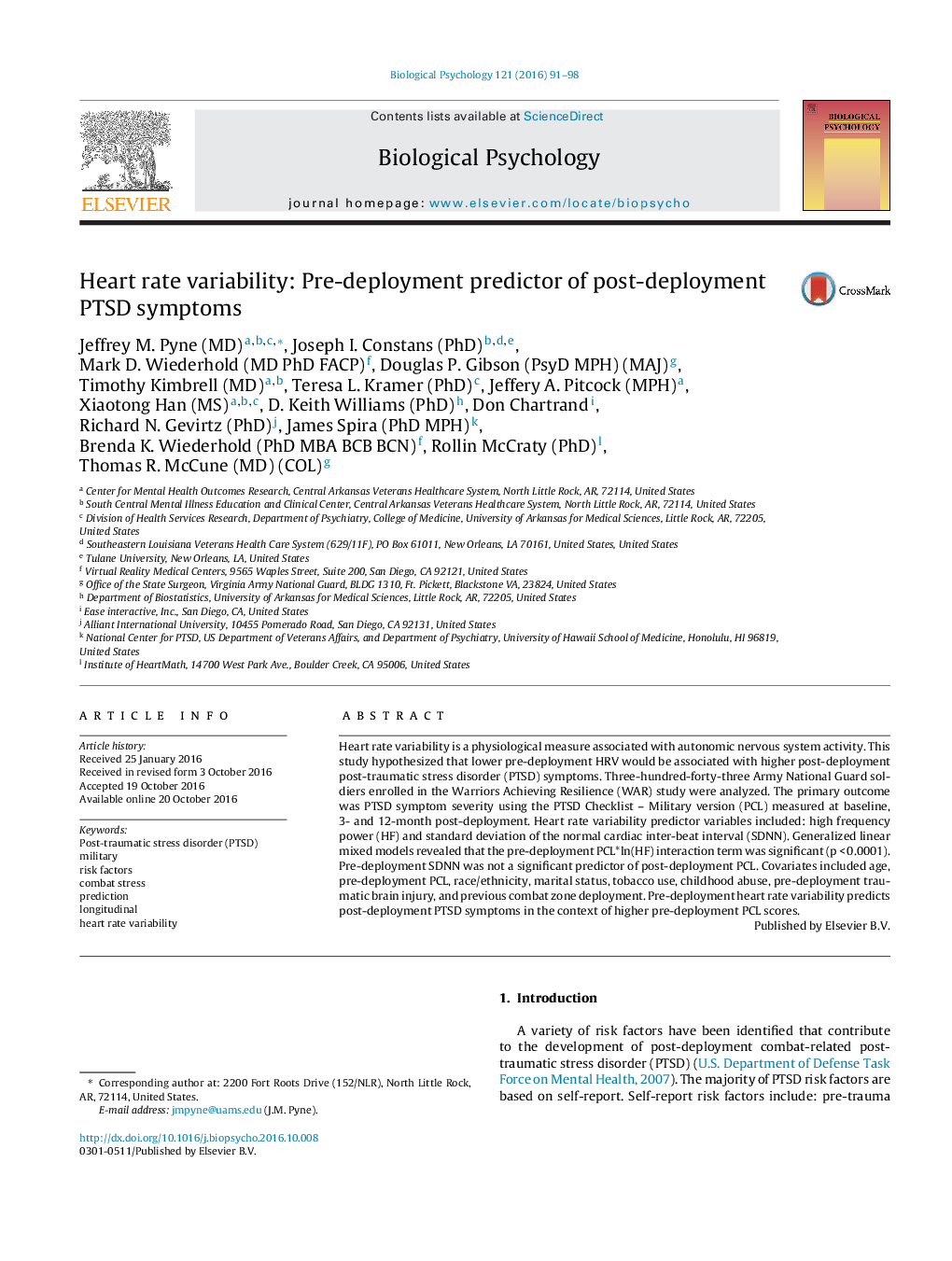| کد مقاله | کد نشریه | سال انتشار | مقاله انگلیسی | نسخه تمام متن |
|---|---|---|---|---|
| 5040444 | 1370417 | 2016 | 8 صفحه PDF | دانلود رایگان |

- Pre-deployment heart rate variability was measured in Army National Guard soldiers.
- Generalized linear mixed models were used to predict post-deployment PTSD symptoms.
- Pre-deployment heart rate variability predicts post-deployment PTSD symptoms.
Heart rate variability is a physiological measure associated with autonomic nervous system activity. This study hypothesized that lower pre-deployment HRV would be associated with higher post-deployment post-traumatic stress disorder (PTSD) symptoms. Three-hundred-forty-three Army National Guard soldiers enrolled in the Warriors Achieving Resilience (WAR) study were analyzed. The primary outcome was PTSD symptom severity using the PTSD Checklist - Military version (PCL) measured at baseline, 3- and 12-month post-deployment. Heart rate variability predictor variables included: high frequency power (HF) and standard deviation of the normal cardiac inter-beat interval (SDNN). Generalized linear mixed models revealed that the pre-deployment PCL*ln(HF) interaction term was significant (p < 0.0001). Pre-deployment SDNN was not a significant predictor of post-deployment PCL. Covariates included age, pre-deployment PCL, race/ethnicity, marital status, tobacco use, childhood abuse, pre-deployment traumatic brain injury, and previous combat zone deployment. Pre-deployment heart rate variability predicts post-deployment PTSD symptoms in the context of higher pre-deployment PCL scores.
Journal: Biological Psychology - Volume 121, Part A, December 2016, Pages 91-98